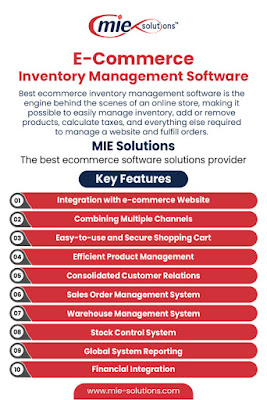We all know the importance of improved supply chain operations in a manufacturing business. None of the discrete manufacturers can overlook this very aspect of his business operations. But, as the supply chain and logistics are becoming more challenging mainly because of the global pandemic, it’s far more crucial for manufacturers and distributors to manage and optimize this division.
Whether it’s an ERP system implementation within your organization or training your staff, the bottom line is it should benefit all business processes including supply chain.
Below are some of the advantages of using ERP to automate, optimize and thereby improve your supply chain management.
Increased Efficiency:
ERP allows you access, analyze and use real-time sales and logistics data so that you can prepare yourself to deal with different manufacturing and supply chain issues. For instance, unavailability of raw materials, production delays, etc. Supply chain management through ERP provides enough insights and time to create and execute a backup plan in any such instance. Moreover, supply chain automation heightens the efficiency rate by reducing human errors in data collection and management.
Improved Quality Control:
ERP solutions like MIE Trak Pro provide 360-degree visibility across supply chain and all other manufacturing processes through real-time, consolidated data. It will give you more control of your stock levels, suppliers and distributors. Considering orders delivery time and product quality, it helps you meet customer demands and expectations, resolve their complaints and control manufacturing and logistics costs without compromising on the quality of the products.
Enhanced Risk Mitigation:
ERP as your company’s core database with real-time data across all departments helps you conduct regular analysis of supply chain data. It reveals potential risks and threats so that you can take appropriate and quick actions to avoid and rectify them. Instead of getting stressed in the events of supply chain disruptions, you can proactively deal with any such situation beforehand. Production and supply chain risk management using an ERP allows you to keep up with the customer demands at all times without trouble.
Clear Communication:
Communication is key in any business success. All of your business stakeholders, including customers, partners, suppliers, and distributors should be on the same page. And, for this proper and instant communication in an absolute necessity. With an ERP software, you can keep all of them in the loop so that they can have a better idea about what’s happening around their concerned business cores. Moreover, clear and better communication will help you run your business operations smoothly and seamlessly – resulting in increased efficiency and productivity. Minimized Overhead Costs:
Greater visibility across all departments, meeting customer demands, improved quality control and increased supply chain efficiency, better communication and data automation ultimately helps manufacturers reduce overhead costs. With automated business operations, you can save on labor costs, while supply chain visibility and quality controls help in reducing dead stock and material wastes. Improved communication helps identify and expunge unnecessary expenses besides getting more competitive market prices for your quality products.
In a nutshell, an ERP system not only helps in managing your supply chain, but eventually brings you more investors, creditors and profit margins.
Improve your supply chain management with MIE Trak Pro. Contact us and get a demo or talk to our ERP experts.




Thank you for sharing this informative blog post.ITs extremely good and very helpful for me.
ReplyDeleteERP Software for Manufacturing
Great Site, Visit the best erp consultants. We empower businesses by providing industry-specific expertise in Epicor ERP solutions.
ReplyDelete